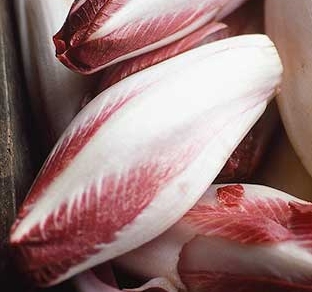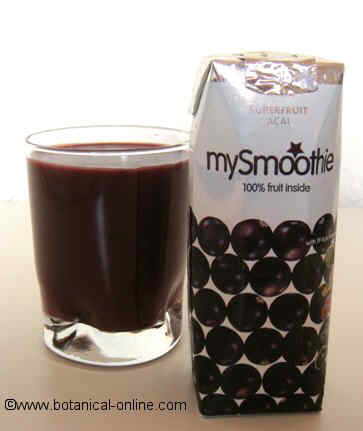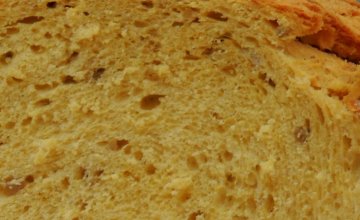Contents
- 1 Edible properties of chicory
- 1.1 BENEFITS OF CHICORY
- 1.2 A bitter food with interesting properties
- 1.3 Chickory to stimulate appetite
- 1.4 Chicory is very good for dieting
- 1.5 Chicory is very good for removing liquids
- 1.6 How good is the chicory in arthritis or gout?
- 1.7 Is chicory good for those suffering from kidney stones?
- 1.8 Chicory has antioxidant properties
- 1.9 Chicory is rich in minerals and vitamins
- 1.10 Chicory is rich in fiber
Edible properties of chicory
BENEFITS OF CHICORY
A bitter food with interesting properties
Chicory belongs to bitter foods. In fact, it is the food that contains more bitter principles. Other well known foods with bitter principles are, for example, artichokes or dandelion.
Bitter taste was very common in primitive food, but this flavor has been lost as the man has been selecting foods.
Man has always rejected bitter taste because he related this taste with that of poisons, so that, bitter food was always thought not to be good or, at least, it could be dangerous.
Chickory to stimulate appetite
Fortunately, some foods, like chicory, still retain this flavor. The properties of bitter foods have been widely recognized. Among them the most important are the ability to improve appetite and promote digestion by stimulating gastric juices, preventing anomalies such as flatulence or constipation.
Bitter taste promotes better food metabolism so that, in addition to avoid indigestion problems, it contributes to “burn” food better and prevent metabolic problems such as obesity.
Bitter food helps assimilate fat-soluble vitamins better (vitamin A, vitamin E, vitamin D and vitamin K) giving the body a greater sense of vigor and fullness.
 Photo of chicory
Photo of chicory
Chicory is very good for dieting
With a 94% water, blanched chicory provides only 17 kcal per 100g whereas green leaves contain 23 kcal. Moreover, its high content in potassium and low in sodium, along with other components such as calcium, magnesium or apigenin, make it a diuretic plant, ideal for removing liquid retention.
For this reason chicory is a recommended food for low fat diets.
Chicory is very good for removing liquids
The diuretic properties of chicory are not only suitable for the treatment of obesity or overweight. The removal of liquid is very important in a number of pathologies in which an increase in urine production may ameliorate the symptoms associated with these diseases, such as liquid retention and hypertension.
How good is the chicory in arthritis or gout?
Many studies include chicory as food in arthritis, or gout. Undoubtedly, it is very important to increase the urine in patients with arthritis. However, do not forget that chicory is very rich in oxalates, a type of crystals that accumulate in the joints and can cause great pain. Therefore, we do not believe that chicory is a suitable food for gout or arthritis. (See foods high in oxalates) (Diet for arthritis)
Is chicory good for those suffering from kidney stones?
Those who are prone to develop kidney stones should also avoid or be very cautious in this vegetable consumption.
Chicory has antioxidant properties
Chicory has antioxidant properties. The main antioxidant component is vitamin A, which chicory contains as beta-carotene. If we want to be fair, we must admit that this vitamin content depends on the type of chicory we choose. Reddish green leaf chicory is very rich this vitamin (4000 IU) while bleached chicory (the white one) has a very little amount (29 IU).
It is better, therefore, to choose unbleached chicory leaves if we want to get all the benefits of vitamin A. We must remember the importance of this vitamin in the prevention of eye diseases such as night blindness, cataracts or glaucoma. No less important is this vitamin in strengthening the immune system, preventing cancer or bad conditions of the skin and hearing.
Chicory has a total of almost 30 antioxidant compounds, which altogether give this plant a quite prominent antioxidant role. Among these are, in addition to carotenoids, flavonoids such as quercetin or rutin; vitamins, such as vitamin C and riboflavin; acids, such as caffeic, chlorogenic, etc.
Chicory is rich in minerals and vitamins
Eating chicory helps vitaminize and mineralize your body. Chicory is rich in potassium, and contains a lot of calcium, magnesium and phosphorus.
As for vitamins, chicory contains a lot of vitamin A and B vitamins, especially folic acid, pantothenic acid, niacin and riboflavin. B vitamins help us keep our nervous system healthy. Folic acid is especially interesting for pregnant women. Ingestion of this vitamins can prevent the formation of fetal anomalies.
The vitamin and mineral content of bleached chicory is lower that that of green chicory.
Chicory is rich in fiber
The richness of chicory in soluble fiber ensures good intestines, prevents the formation of flatulence and helps expel the stool, avoiding constipation. This type of fiber is very important on cholesterol control and the elimination of toxins from the body.
![]() More information on chicory.
More information on chicory.








